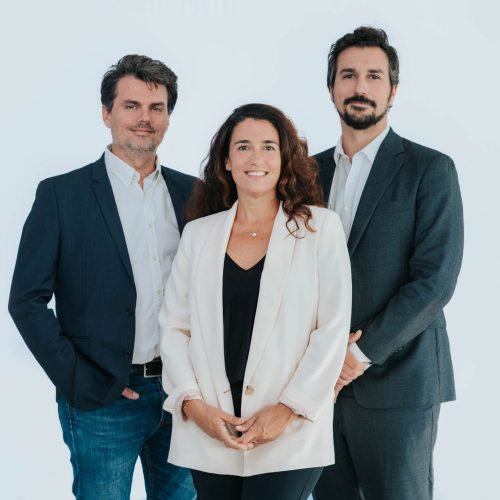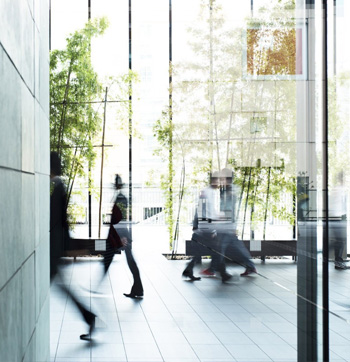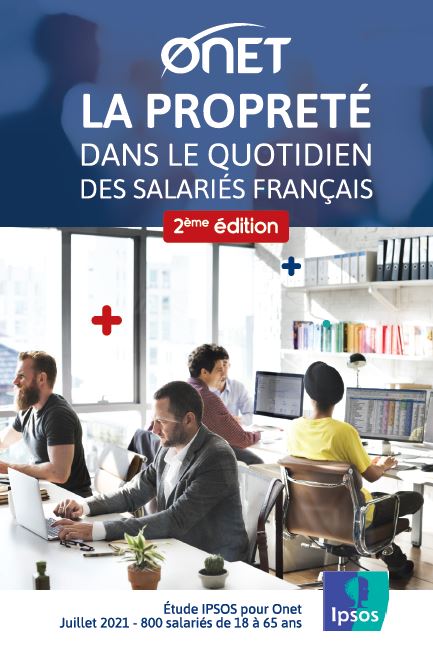Well-being and performance at work
Cleaning services change paradigm
Since the health crisis, the working world has undergone profound changes. Telecommuting, which for a time was imposed on many companies, has shaken things up. To recreate the desire for face-to-face teamwork, it is now necessary to offer employees clean, comfortable premises.
Far from being a simple cost line, the quality of hygiene and cleanliness services is now judged on the basis of user experience. The effects of this new paradigm are perceptible in terms of both well-being in the workplace and economic performance.
Onet has been developing this vision for several years, drawing in particular on studies conducted with Ipsos on "The place of cleanliness in the daily lives of French employees" (2018 and 2021). This reflection underlines the relevance of an approach based on user experience, at the heart of the innovative solution developed by Onet, Clean Connect.
- - Onet
The rise of telecommuting
During the health crisis, many companies were forced to work remotely. Videoconferencing meetings, sharing documents online, setting up home offices... The contours of the workplace were blurred, far removed from the traditional office.
Remote working is more than just an option, it's a new way of working that's proving very attractive. Noise is the main disadvantage cited for working in an office (67%). Conversely, the peace and quiet that encourages concentration, and the time saved on commuting, are the major advantages of working remotely for many employees. In fact, more than half of all teleworkers consider that they are more productive when they combine face-to-face work with telecommuting.
Hybrid working, a trend born of constraint, thus seems to be establishing itself as a model for balance and efficiency. The "What is an office? " survey underlines this: 52% of employees who teleworked during the pandemic believe that in future, work will be carried out " half the time in offices and half the time teleworking ".
Office reorganization
In this quest for balance, however, the office remains a crucial living space for employees. Over the last few decades, theopen-plan office, which developed from the 1960s onwards in response to the economic logic of optimizing space, has evolved. Cubicles, by creating partial partitions, have gradually transformed noisy workstations to offer greater privacy. Rooms dedicated to telephone calls are now commonplace.
The flex office, or "dynamic office", is another organizational mode that has seen the light of day in some French companies in recent years. It involves pooling workstations in order to take account of variables in presence (telecommuting, vacations, external meetings, etc.). At the same time, alternative spaces are set up to meet specific needs: meeting rooms, concentration areas, etc. With flex office, employees don't have their own office, but work where they want - and can - according to their activities. The pandemic has contributed to the development of this system, often associated with remote working. According to the Parella 2021 barometer, a third of the companies surveyed have implemented it, and 40% are planning to do so.
This fragmentation of the office raises major issues for companies. Maintaining performance, fostering a sense of belonging and maintaining efficient management are real challenges. With this in mind, providing clean, welcoming offices in which employees feel at ease is a key objective in attracting and retaining employees.
There's no denying it: cleanliness has a huge influence on French people's daily lives. In the workplace, employees are also subject to the daily imperative of cleanliness and hygiene. 98% of French people believe that hygiene and cleanliness contribute to well-being in the workplace. It's also a source of performance. Conversely, lack of cleanliness is a source of conflict, and this is exacerbated when you're in a flex office. It's true, then, that new organizational modes are leading us to take this notion of cleanliness into greater consideration.
Damien Barnier, Account Manager Ipsos
Cleanliness,
a "fundamental" notion
for the French
An expert in cleaning and related services for businesses, Onet didn't wait for the pandemic to decipher the new expectations of end-users. For example, two studies have been carried out, in 2018 and 2021 in partnership with Ipsos, on " The place of cleanliness in the daily lives of French people and in their workplace".
For 9 out of 10 French people, the notion of hygiene is "fundamental".
Required in hospitals (96%) and restaurants (95%), it is also expected in the workplace by 88% of respondents. This vigilance has become even more acute since the health crisis.
8 out of 10 French people say they pay more attention to the hygiene and cleanliness of the places they frequent.
According to the 2021 survey, this can be a real stumbling block, as 9 out of 10 French people claim to have already given up an activity for reasons of cleanliness. This is also true in the workplace, where 44% of employees have avoided going to the toilet for fear of poor hygiene...
At a time when the return of face-to-face teams is a major challenge for companies, this figure raises a number of questions.
Hygiene in the workplace:
a lever for performance and well-being
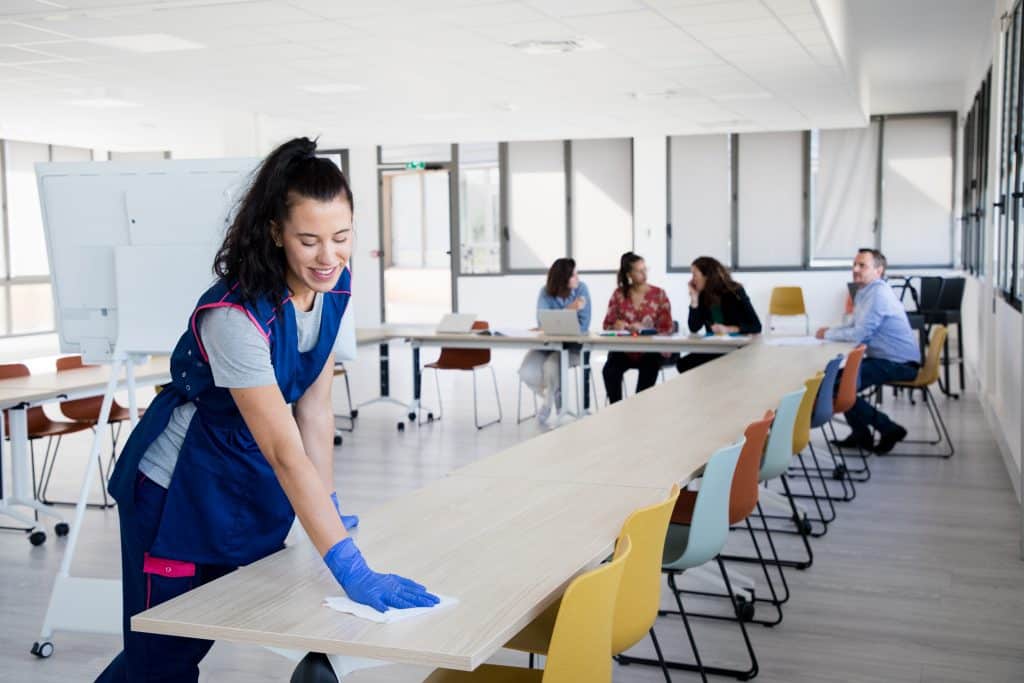
It's clear that employees are now more aware of the need for cleanliness on their premises.
It is particularly needed in certain areas, starting with toilets and washrooms for 90% of employees, and more generally, the study points to shared areas (canteen, kitchen area, break room) as key zones.
The Onet x IPSOS study underlines the need for clean, tidy offices, as 95% of employees believe that this environment contributes to motivation.
For 92% of them, it's a necessary element for better performance (a figure up 7 points on the previous survey dating from 2018). Hygiene also plays a part in well-being at work: 94% of employees believe it helps maintain a good atmosphere.
Conversely, 87% of workers consider lack of cleanliness to be a source of stress, and almost one in two employees has experienced a conflict in the office over this issue.
For all these reasons, it's crucial to ensure that your employees' premises are maintained with care and regularity.
The presence of cleaners is also positively perceived. 7 out of 10 employees say they have more confidence in the cleanliness of their workplace if they see these hygiene professionals present.
Onet's conviction
Daytime work
The study highlights the benefits perceived by employees when they work alongside cleaners, but they are not the only ones. At Onet, we are convinced that it is preferable to plan the presence of cleaners around the company's business hours, rather than on a staggered or discontinuous basis during the day, i.e. at the end of the day and/or very early in the morning. This organization benefits all parties: the customer's employees, the cleaners and their respective management teams.
- The services provided benefit from greater visibility, with the possibility of seeing incidents dealt with rapidly, as soon as they are reported. The responsiveness of our agents, who adapt to end-users' needs and workflows, is greatly appreciated!
- Daytime interventions enable energy savings, since the agents are present during normal working hours: a positive point for any CSR approach. Another environmental advantage is that agents benefit from public transport and/or reduce their car journeys in the case of continuous services.
- Finally, coactivityhumanizes relations between the various stakeholders. 81% of employees interact with agents to thank them or exchange courtesies. This creates a relationship of trust between the parties involved, and contributes to agent loyalty, well-being and reduced absenteeism. They are valued and more motivated.
For 13 years now, Ricoh France has been offering daytime cleaning services. Gradually, we've seen an improvement. Employees are more respectful and, above all, we can see that our cleaning service is adapted to our needs. There are no longer systematic services, but really targeted actions throughout the day.
Isabelle Darras, Services Procurement RICOH
CleanConnect, the digital revolution
for waste management... and users
The Onet x Ipsos studies highlight the impact of cleaning and hygiene services on employee well-being and performance. They also fuel the development of innovative responses to new expectations, in particular the need for cleaning according to the use of the premises, a need confirmed in 2021 by Onet with 93% support from employees (Ipsos 2021 survey. % of employees who consider cleaning according to the use of the premises to be essential).
Cleanliness in use responds to companies' need to adapt. It is the translation, in hygiene services, of the desire to respond to the unforeseen, the random, the variables that we observe elsewhere with the flex office.
Xavier Baron, Researcher and sociologist.

To meet these new requirements, Onet has combined people and technology with its CleanConnect offer.
Hygiene services are usually contractually defined in terms of frequency and price per square meter.
Onet offers a new, dynamic and much more efficient model. CleanConnect illustrates a simple yet revolutionary idea: it's more efficient to intervene in the right place at the right time, according to users' needs.
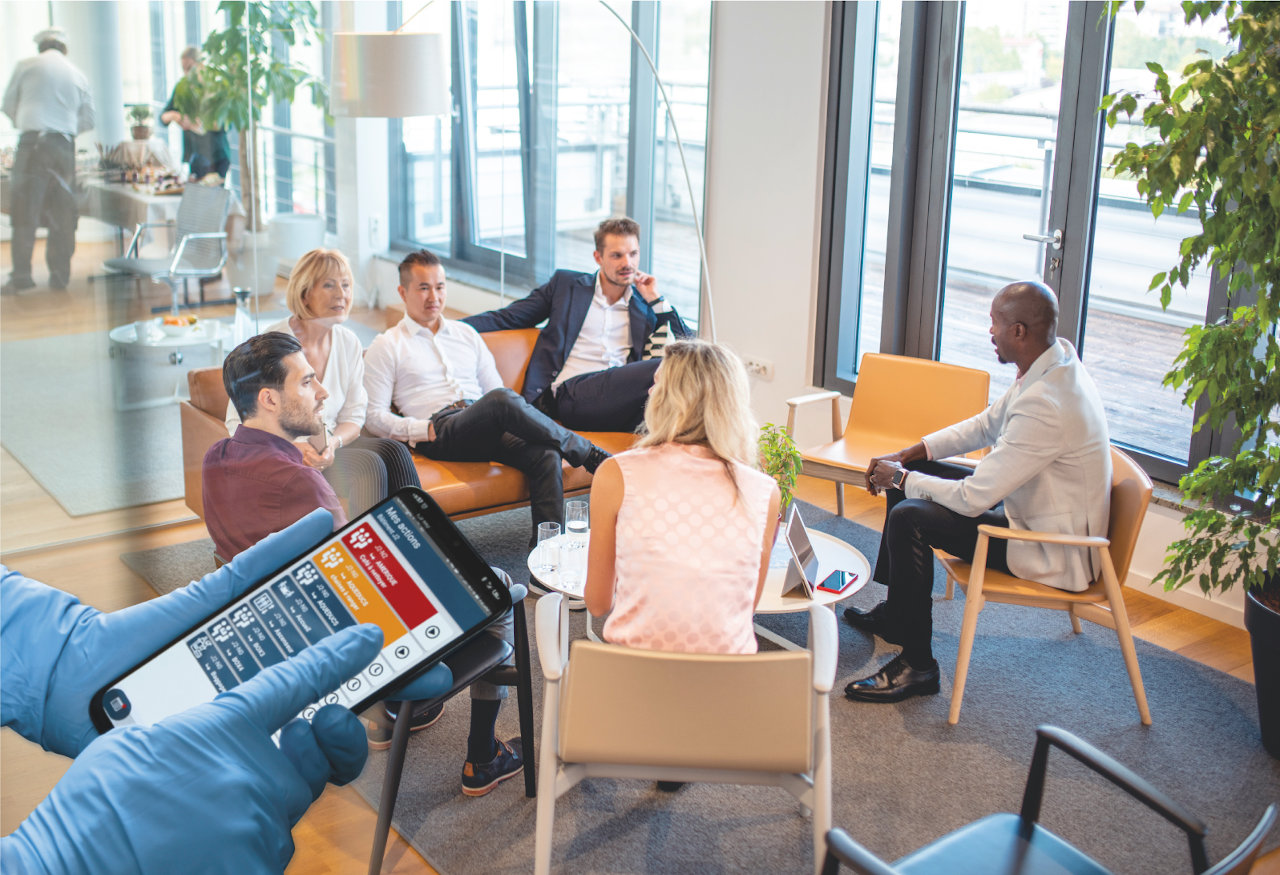
Clean Connect is the first pay-as-you-go cleaning service. The aim is to be in the right place at the right time, not to be on a recurring frequency, but to have a cleaning service that adapts to the occupants' use. Today, it's the occupants who are at the heart of the process. They are the ones who define our cleaning habits. Hence the Clean Connect
Hugo De Haan, Onet Regional Development Manager
At Onet, cleanliness in use is based on a Cleaning Needs Analysis algorithm.
Using connected sensors placed around the premises, site data and manual additions made by occupants on the app, CleanConnect draws up an optimized cleaning plan.
Priority is given to emergencies, such as spilled coffee. Before each intervention, thecleaning operative knows which tasks need to be carried out in which areas.
All he has to do is consult the CleanConnect app on his smartphone. This allows him to work independently, more fluidly and efficiently.
For him, it's also a factor of empowerment, a gain in meaning at work and a daily routine made up of less monotonous tasks. In fact, with hybrid and flex office working, it's not always necessary to intervene in every zone. Adapting to real needs is what makes this innovation so valuable.
Continuously adapted in real time, Clean Connect cleaning services offer consistent quality. This reliability is a real asset in enhancing end-user comfort.
CleanConnect is revolutionizing the cleaning and office-cleaning business by supporting new ways of working.
